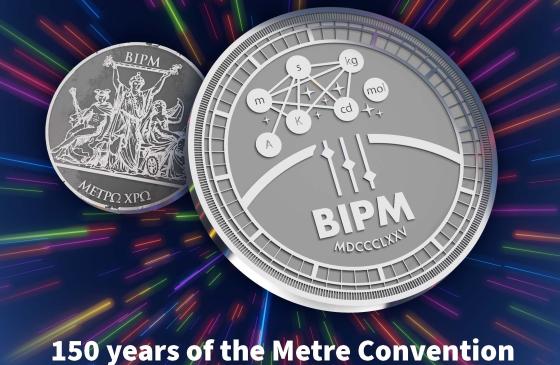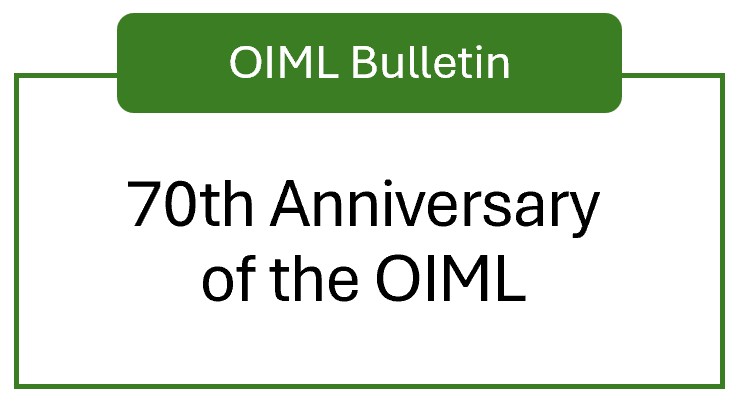OIML BULLETIN - VOLUME LXVI - NUMBER 2 - April 2025
e v o l u t i o n
Colombia's experience as a utilizer within the OIML-CS framework:
A look into the legal metrology information system SIMEL
Pedro Pérez 1, 2, Andrés González 2 and Beatriz Sánchez 2
1. Universidad Nacional de Colombia , Colombia
2. Superintendencia de Industria y Comercio (SIC), Colombia
Citation: P. Pérez et al. 2025 OIML Bulletin LXVI(2) 20250203
1. Introduction
As an OIML Member State and OIML-CS utilizer [1], Colombia is directing efforts – through its surveillance authority, the Superintendency of Industry and Commerce (SIC) – to promote the use of reliable, trustworthy measuring instruments, thereby ensuring the quality of measurements.
Since 2016 Colombia has adopted six OIML recommendations (R 21, R 76, R 117, R 126, R 79 and R 87) and is working on the regulation to adopt at least three more (R 49, R 46 and R 137).
To facilitate monitoring of the metrological control provisions applicable to measuring instruments, a Legal Metrology Information System (SIMEL) has been implemented. This is a database containing conformity assessment and other documents for measuring instruments such as liquid fuel dispensers, non-automatic weighing instruments (NAWI), and evidential breath analysers. In this paper we focus on the information in SIMEL related to fuel dispensers and NAWI.
Every manufacturer or importer of NAWI or fuel dispensers in Colombia has to create an account in SIMEL and must register every model produced in or imported into the country, including the documents demonstrating its conformity. In this paper we consider the data from instruments that have demonstrated compliance with OIML certificates.
2. Background
According to Decree 1595 of 2015 [2], the SIC has implemented a two-phase approach to metrological control:
- Conformity assessment. Prior to importation, or prior to entry into circulation for instruments manufactured in the country, the importer or producer of a measuring instrument must demonstrate its compliance with the appropriate metrological technical regulation issued by the Superintendency of Industry and Commerce in accordance with the provisions of section 9 of Decree 1595. or alternatively demonstrate compliance with the requirements stated in the corresponding Recommendation of the International Organization of Legal Metrology (OIML).
Measuring instruments subject to metrological control that do not demonstrate their compliance with the respective metrological technical regulation may not be imported or put into circulation.
- Measuring instruments in service. Any person who uses or maintains a measuring instrument used in any of the activities listed in the decree shall be responsible for the proper functioning and maintenance of the measuring instrument, with regard to its mandatory metrological characteristics and the reliability of its measurements, as well as for compliance with the corresponding metrological technical regulations. They must also permit the periodic verifications established in the technical regulations or those carried out after a repair or modification of the instrument, at their own expense, allowing access to the measuring instrument and the relevant documents.” [2]
To monitor the conformity assessment phase, the SIC developed SIMEL, a database that integrates information on the actors and measuring instruments monitored in the country, including producers and importers, marketers, repairers, measuring instrument users, and Authorized Metrological Verification Bodies (OAVMs).
Among the obligations of producers and importers of measuring instruments subject to metrological control is the early incorporation into SIMEL of documents demonstrating compliance with the technical regulation, particularly type approval, before introducing instruments subject to metrological control into the national market.
In this paper we consider the information in SIMEL demonstrating the compliance of fuel dispensers and NAWI since regulation of these instruments in Colombia was introduced in 2016.
3. Measuring instruments monitored in Colombia.
Compared to other economies with a Gross Domestic Product (GDP) between
As the country's legal metrology authority, SIC currently monitors technical regulations for:
- Liquid fuel pumps
- Non-automatic weighing instruments
- Breathalysers
- Taximeters
In this paper we focus on dispensers, scales, and truck scales, as for these instruments there is a considerable inventory of models registered with SIMEL (see Figure 1).
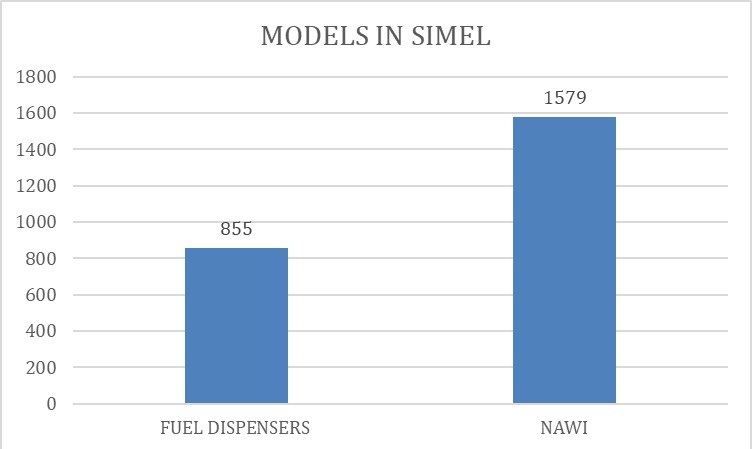
Figure 1. Number of models of measuring instrument registered in SIMEL as of March 2025.
Across both kinds of measuring instrument (76 % for NAWI and 24 % for Fuel Dispensers), there are 99 registered companies in SIMEL, including manufacturers and importers. For 66 % of those companies, conformity of at least one of their models is demonstrated with OIML certificates: 67 % of the companies that put NAWI on the Colombian market and 63 % of the companies selling fuel dispensers.
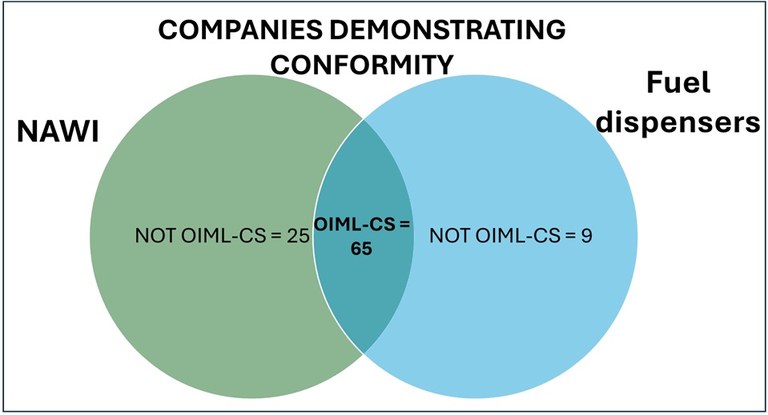
Figure 2. Number of companies as of March 2025 using OIML-CS certificates or other valid documents to demonstrate conformity with the Colombian regulation.
3.1. NAWI (commercial scales and truck scales)
As of March 2025, there are 1579 different models of NAWI registered in SIMEL, including scales for commercial use and truck scales.
Currently, the Colombian regulation for NAWI has three equivalent legal acts/regulations/standards: Directive 2014/31/EU, Section 2.20 of Manual No. 44 from NIST, and NOM-010-SCFI-1994 – in addition to the OIML R 76:2006 "Non- automatic weighing instruments". In SIMEL, 23 % of the registered models of NAWI demonstrate conformity with Type approvals issued in the OIML-CS framework.
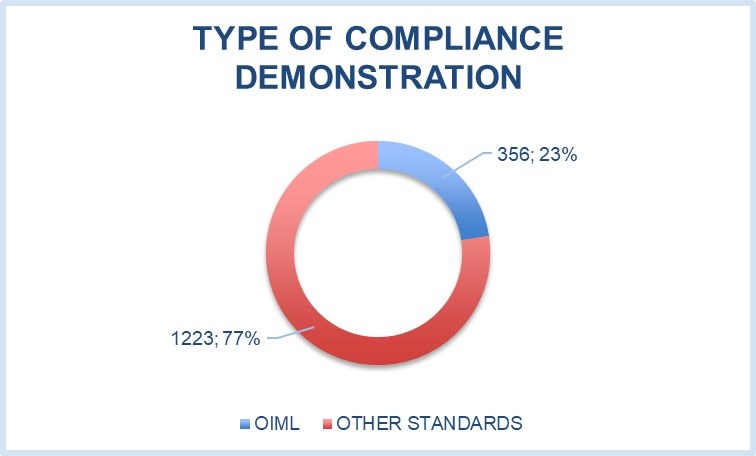
Figure 3. Number of NAWI in SIMEL as of March 2025 demonstrating conformity with OIML-CS certificates or other standards.
The main issuing authority for these OIML-CS documents is NMi Certin BV (Netherlands) with 55% of the instruments.
It is important to note that not all registered models are active in SIMEL; manufacturers or importers can desactivate a registration depending on the demand for a particular model.
As of March 2025, 77% of the registered models are active in SIMEL, even though many have been registered for more than seven years. This indicates a high demand for these models in the Colombian market - due to their metrological reliability, features, and long lifetime.
These instruments arrive into Colombia from several countries: Chinese Taipei, Japan, India, United Kingdom, Canada. Poland, Spain, Italy, Germany, USA, People's Republic of China, Republic of Korea, and Brazil (Figure 4).
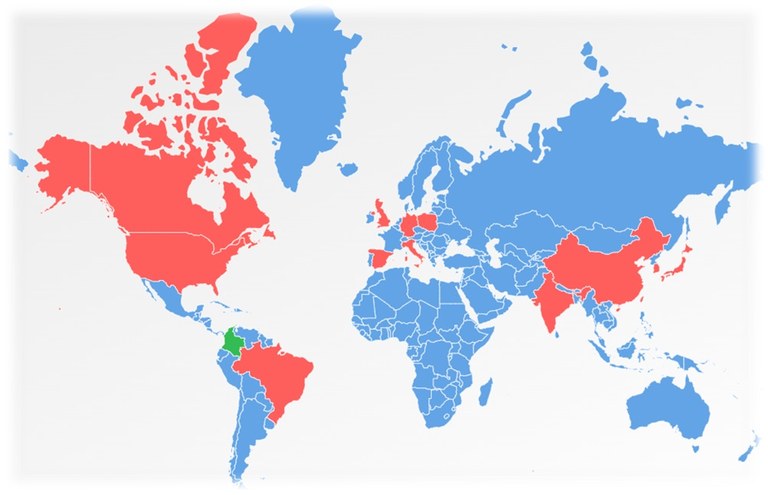
Figure 4. Countries exporting NAWI to Colombia are shown in red; Colombia is shown in green.
Colombia, which became an OIML Member State in 2012, issued its first regulations for measuring instruments in 2016, establishing that demonstration of conformity is required and allowing certificates issued under the OIML-CS to be valid documents for the demonstration of compliance. As of March 2025, six Colombian companies have obtained OIML certificates for their measuring instruments; 90% of these certificates have been issued after 2016, demonstrating the impact of the regulation.
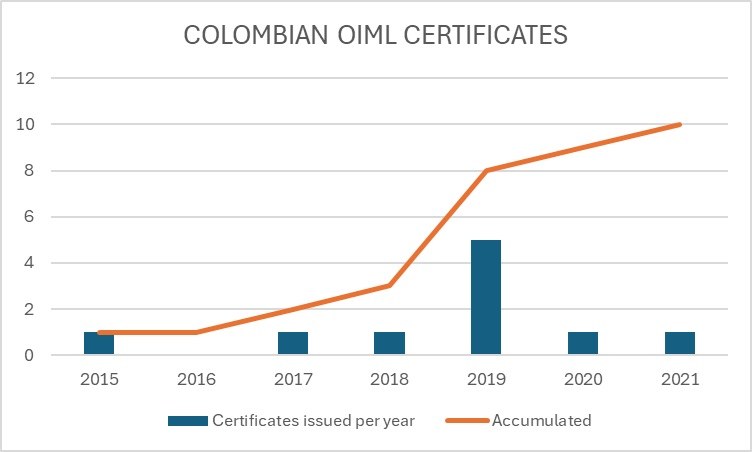 Figure 5. OIML certificates issued to Colombian NAWI manufacturers in the last 10 years.
Figure 5. OIML certificates issued to Colombian NAWI manufacturers in the last 10 years.
3.2 Fuel dispensers
As of March 2025, there are 855 different models of fuel dispenser registered in SIMEL.
Currently, the Colombian regulation for fuel dispensers has three equivalent legal acts/regulations/standards: Annex MI-005 of Directive 2014/32/EU, Section 3.30 of Manual No. 44 from NIST and NOM-005-SCFI-2017 – in addition to the OIML R 117:2019 "Dynamic measuring systems for liquids other than water". As of March 2025, 12 % of the models reported in SIMEL demonstrate conformity with OIML-CS certificates (see Figure 6).
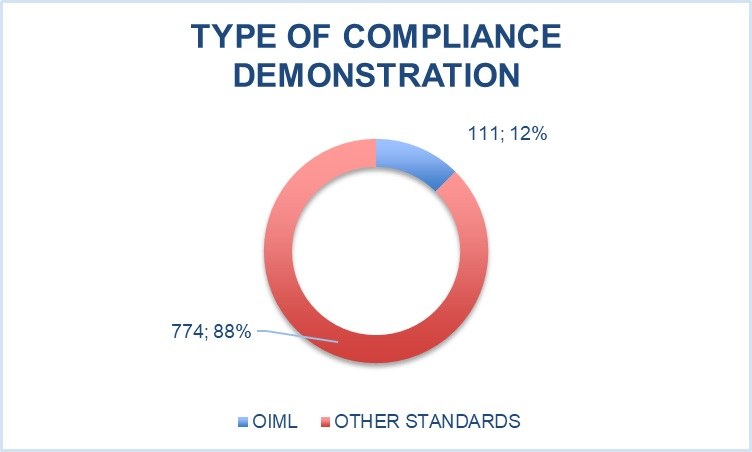
Figure 6. Number of fuel dispensers in SIMEL as of March 2025 demonstrating conformity with OIML-CS certificates or other standards.
These instruments arrive into Colombia from several countries: Japan, India, Canada, Spain, Italy, Germany, USA, People's Republic of China, Republic of Korea (Figure 7).
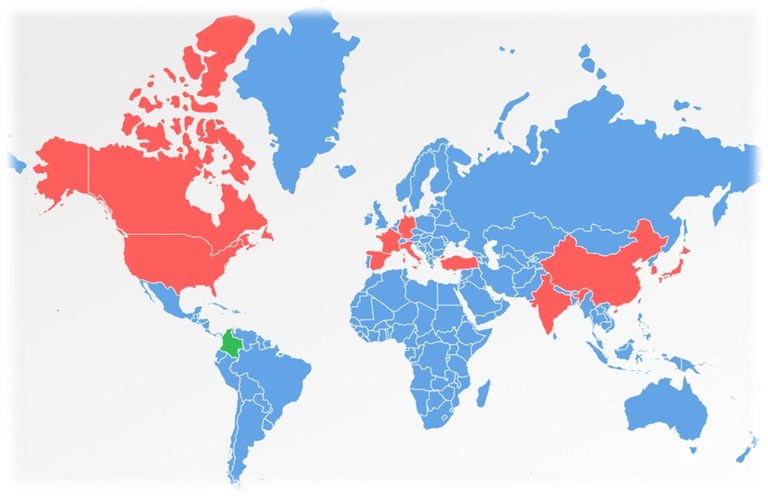
Figure 7. Countries exporting fuel dispensers to Colombia are shown in red; Colombia is shown in green.
As seen in Figure 6, 12% of the models of fuel dispenser registered in SIMEL, correspond to OIML certificates, with 66% of those issued by CMI (Czech Metrology Institute) in the Czech Republic.
As discussed for NAWI, not all of the registered models of fuel dispenser are active in SIMEL, as manufacturers or importers can desactivate the registration depending on the demand for a particular model. As of March 2025, 77% of the registered models are active, with all registrations made since 2020. This indicates a high demand for these models in the Colombian market due to their metrological reliability, features, and long lifetime.
Conclusions
The two main types of measuring instruments affecting commercial transactions in Colombia are NAWI and fuel dispensers. These were therefore the first measuring instruments to be regulated in Colombia, and thus there are more records of their means of conformity assessment.
The information in SIMEL shows hat OIML certificates occupy a significant portion of the conformity assessment market for NAWI and Liquid Fuel Dispensers in Colombia. Approximately two-thirds of the agents introducing these measuring instruments into the market use this type of certification to demonstrate the conformity of at least one of their models.
The development of the quality infrastructure and the issuance of regulations related to measuring instruments in Colombia have been a driving force behind the country's growth. Before regulations for measuring instruments existed, only one company in the country held an OIML certificate for a single model. Now, six Colombian companies hold this type of certification, allowing them to be competitive not only in the domestic market but also in the 37 countries identified as OIML-CS users [1].
The lack of laboratories to perform some of the tests required for type approval, the opening of markets, regulatory mechanisms to avoid unnecessary obstacles to trade, and the strictness of the OIML in issuing its recommendations have made these standards a valuable alternative for achieving equivalence with Colombian regulations. This has consolidated OIML certificates as a useful tool within the framework of the country's quality infrastructure, not only for manufacturers and importers but also for the legal metrology surveillance and control authority, given that it is easy to verify that the information uploaded to SIMEL is authentic, since it is accessible on the OIML website.
References
[1] OIML Certification System (OIML-CS) List of Utilisers, Associates and their scopes: https://www.oiml.org/en/oiml-cs/docs/oiml-util-and-assoc-summary-table.pdf
[2] Decree 1595, 2015, Presidency of Colombia (2015) Función Pública. Available from https://www.funcionpublica.gov.co/eva/gestornormativo/norma.php?i=62889
[3] UNIDO (2022). Quality Infraestructure for Sustainable Development Index. Available from https://hub.unido.org/qi4sd/COL?year=2022&compare=GDP&value=L

